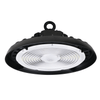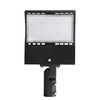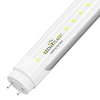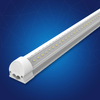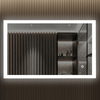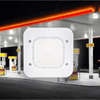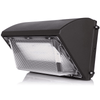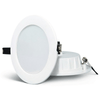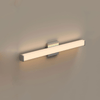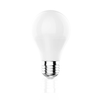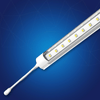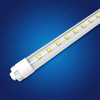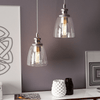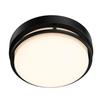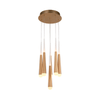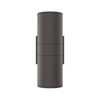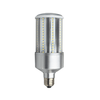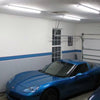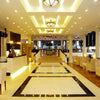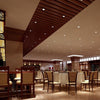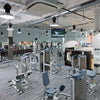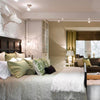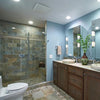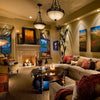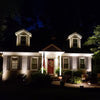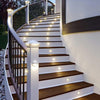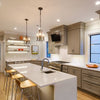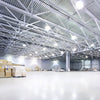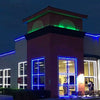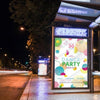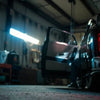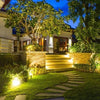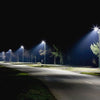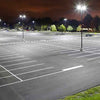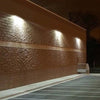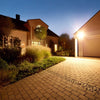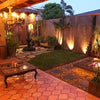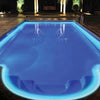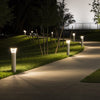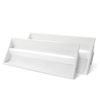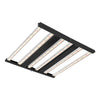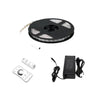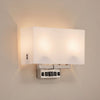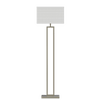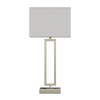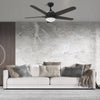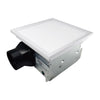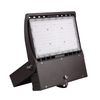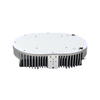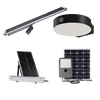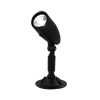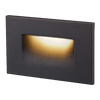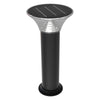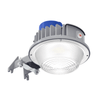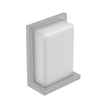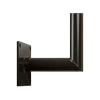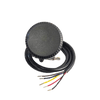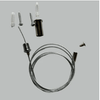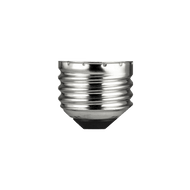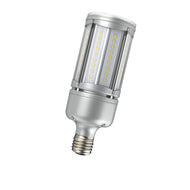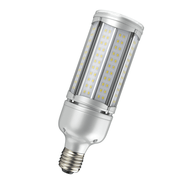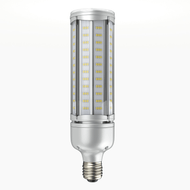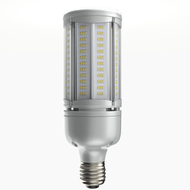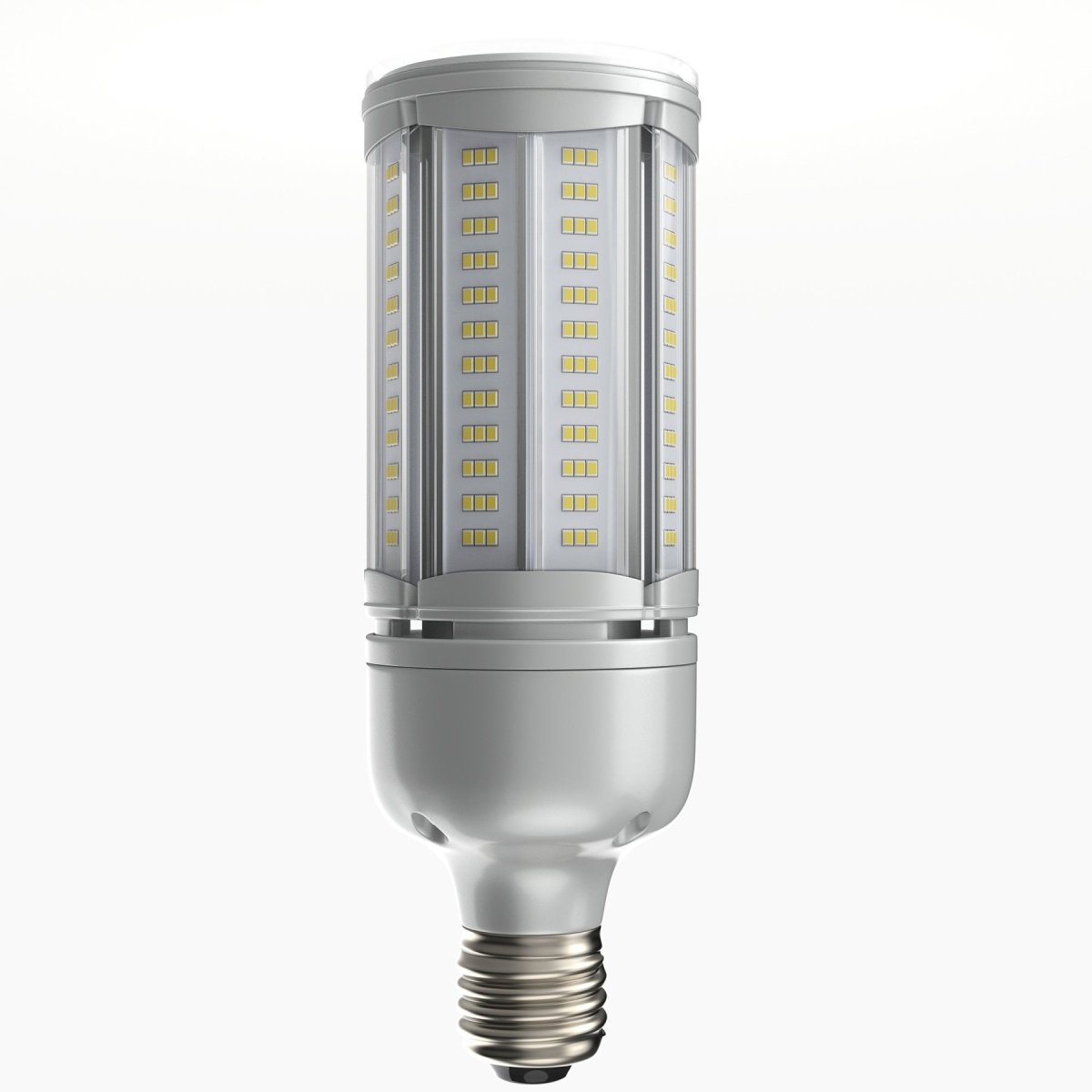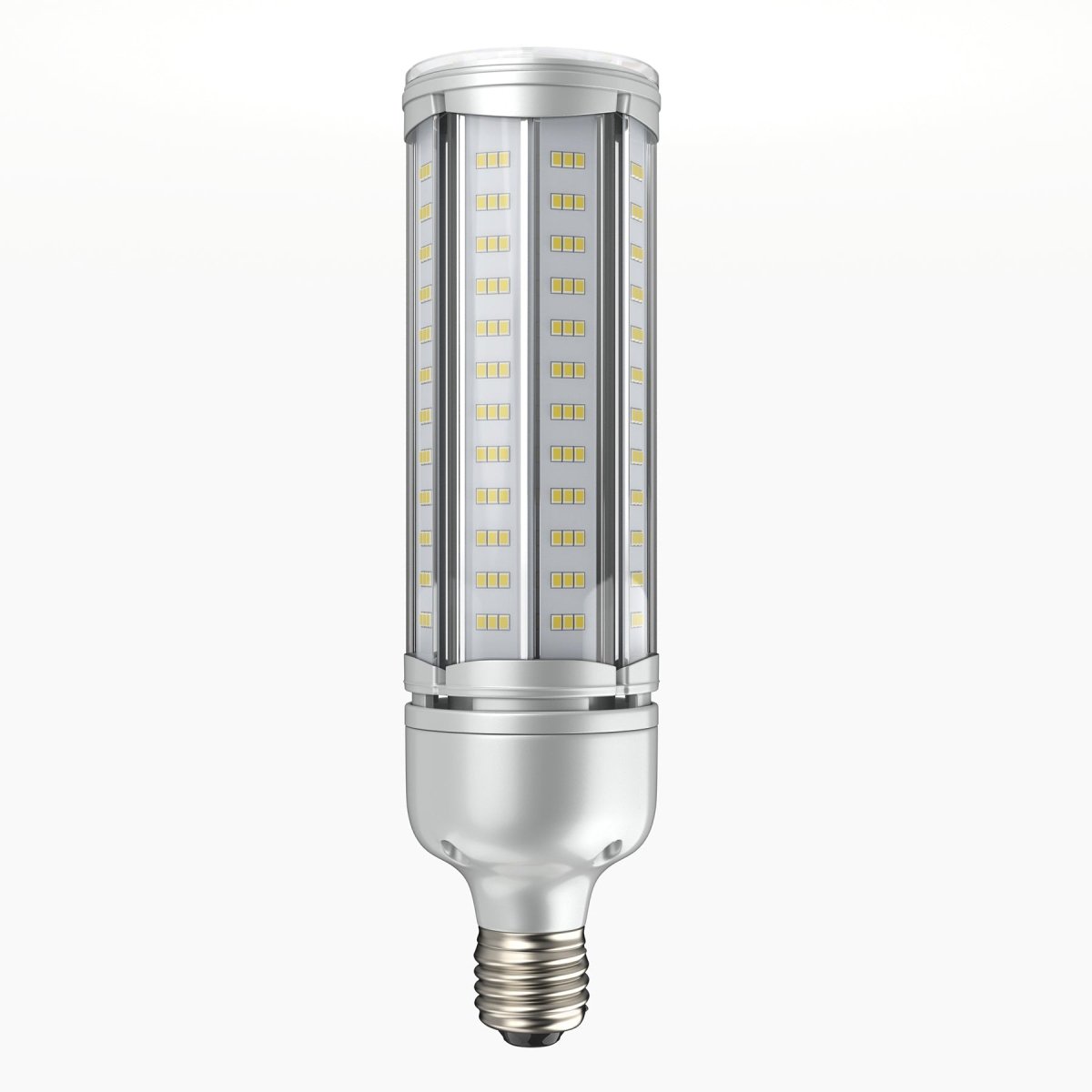Filter and sort
LED Corn Bulbs | Outdoor Lighting
The high illumination intensity LED Corn Bulb can effortlessly brighten up your outdoor premises. The LED corn lights are surrounded by LED modules, which are suitable for industrial lighting purposes. Furthermore, the LED cob light is water-resistant and will offer great performance in football fields, streets, roads, parts, and parking lots.
-
FREE SHIPPING on orders over $99
- MPN: CB011
- Warranty: 5 Years
Brightness: 18W=2790lm/60W=9300lm/ 100W=15500lm/120W=18600lmWattage: 18W/60W/100W/120WCCT: 5700 KelvinLife Hours: 50,000 Hours$29.99 $60.99Save $31.00 (51%)
About LED Corn Bulbs | Outdoor Lighting
Lighting up your outdoors doesn’t always require heavy-duty pole lights, Corn Bulbs equally serve the purpose and also save you money on various fronts. Highly energy-efficient these outdoor LED light bulbs offer more than lighting, these provide comfort. But buying a corn cob LED is not such an easy task.
This is why we have prepared this guide to help you with your evaluation process. We have prepared this guide to evaluate the best option for you and inform you about how to pick the right corn bulb.
What are Corn Bulbs?
LED corn cob light bulbs are round lamps that replace commercial HID and halogen lamps for commercial and industrial applications. Many LED corn cob lamps have a 360° beam angle to provide full light coverage in the area around and above the light fixture. These LED corn bulbs can be installed in an upward, downward, or horizontal direction. LED corn bulbs are available in two installation methods; one involves bypassing the HID ballast to connect directly to 120 or 277V. The other installation is plug-and-play, which consists of a built-in LED motor.
LED corn bulbs are a great source to deliver excellent wattage replacement. An LED corn bulb from 18 watts to 120 watts can replace the wattage of a conventional metal halide bulb from 63 watts to 420 watts. They are prominently used in street lights and pole lights. Due to their capacity to deliver illumination at a complete 360-degree angle, an LED corn bulb is commonly used in parks, streets, alleys, gardens, etcetera.
LED Corn Light bulbs lamps offer a more energy-efficient lighting solution for parking lots, football fields, building perimeters, walkways, car dealerships, stadiums, parks, and most commercial applications. Corn cob bulbs have a longer life rate and require lower maintenance than conventional HID lamps, resulting in more energy and cost savings in the long run.
Components of LED Corn Bulb
Much as lighting sources differ, LED corn bulbs are not identical. Some have better construction and components compared to others. High-quality LED lights typically have the following features:-
- Optics = These uniformly disperse the light and are usually made from plastic to reduce the chances of shattering.
- LED Chips = These small yellow pieces generate the light and are typically attached to a metallic object.
- Heat Sinks = These dissipate the heat generated by the LEDs while they are in operation. A heat sink provides the route for heat to pass from the bulb to the outer atmosphere.
- Drivers = Also known as circuit boards, the drivers pull power from the sockets and tell the LEDs to turn on, switch off, change color, or dim.
- Housing = The housing for an LED light must be conducive to heat as the driver heats typically up as electricity passes through it.
- Base = LED corn lamps can be found in most screw-in sockets. When buying these lamps, be sure to choose the right foundation. There are LED corn lights for E26 and E39 base bulbs.
Based on the base types
There are two types of bases available in corn bulbs:-
- E26 = This base type is known as the Medium Edison Screw base and is the standard base for most bulbs. ‘E’ here stands for Edison and the number is the diameter of the base in millimeters.
- E39 = Known as Mogul Edison Screw base, these are used in commercial applications or on farms. The naming is the same as in the E39 base type. The application of these bulbs is mostly in barns and warehouses.
Base on wattages
AT LEDMyPlace we have multiple wattages of corn bulbs available, which are listed here:-
- 18 watt which replaces 63 watt metal halide corn bulb
- 60 watt which replaces 210 watt metal halide corn bulb
- 100-watt which replaces 350 watt metal halide corn bulb
- 120-watt which replaces 420 watt metal halide corn bulb
Advantages of LED Corn Bulbs
- Energy-efficiency: These LED Corn bulbs are highly energy-efficient and convert 95% of the electricity consumed into light while losing only 5% as heat. This means that you will save 75% on your utility bills. This energy efficiency also makes these bulbs highly eco-friendly as these lights consume less electricity and produce very little heat.
- High CRI: The color rendering index measures the accuracy of a light source in rendering colors in comparison with an ideal light source such as sunlight. The CRI of these LED corn bulbs is more than 80 which means that the light of these bulbs renders colors with an accuracy of 80%.
- Long-lasting: These corn bulbs are highly long-lasting and have a rated operational life of more than 50,000 hours which means that these bulbs will last for more than 5.7 years even if you use the bulbs 24 hours of the day.
- More Durable: Since LED lights are devoid of glass enclosures and filaments, they are resistant to breakage, vibrations, and other impacts. LED chips are mounted on circuit boards and connected with soldered leads.
- Cold Temperature Operation: When used in low-temperature environments, the performance of LED lights increases as operating temperatures decrease. This feature makes the lights ideal for outdoor applications.
Frequently Asked Questions
Q: Where are LED corn bulbs commonly used?
A: LED corn bulbs are commonly used in a variety of applications, including outdoor lighting, streetlights, parking lots, warehouses, garages, and high-ceiling spaces. They are suitable for both commercial and residential settings that require high-intensity lighting.
Q: How do LED corn bulbs compare to traditional HID lamps?
A: LED corn bulbs outperform traditional HID lamps in several aspects. They have a higher energy efficiency, typically consuming 50-80% less energy than HID lamps while delivering comparable or even better light output. LED corn bulbs also have a longer lifespan, reducing maintenance and replacement costs. Additionally, they offer instant lighting, better color rendering, and improved directional light distribution.
Q: Are LED corn bulbs dimmable?
A: Yes, many LED corn bulbs are available in dimmable versions. However, it's important to check the product specifications to ensure compatibility with your specific dimming system. Not all LED corn bulbs are designed to be dimmed, so it's crucial to choose dimmable models if dimming functionality is required.
Q: Do LED corn bulbs require a ballast?
A: No, LED corn bulbs do not require ballast. Traditional HID lamps often require a ballast for proper operation, but LED corn bulbs have an integrated driver that allows them to be directly connected to the electrical supply. However, it's important to ensure that the existing fixture is compatible with LED corn bulbs and that any existing ballast is bypassed or removed during installation.
Q: What is an LED corn bulb?
A: An LED corn bulb is a type of LED bulb designed with multiple individual LED lights attached to it, resembling kernels on a corn cob. This design allows for a broader spread of light from the bulb.
Q: Why is it called a "corn bulb"?
A: It's called a corn bulb because the design, with rows of LED "kernels" covering the bulb, resembles the appearance of kernels on a corn cob.
Q: Do LED corn bulbs require any special fixtures or fittings?
A: LED corn bulbs typically come with standard bases (e.g., E26 or E39), allowing them to fit into regular fixtures. However, it's essential to ensure adequate ventilation around the bulb, as they can generate heat.
- Choosing a selection results in a full page refresh.

